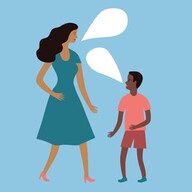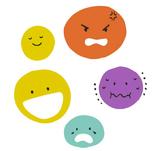
an emotional skills building program called R.U.L.E.R.”
Children’s Television Host and Advocate Fred Rogers once said, “feelings are mentionable and manageable.” Allowing others to talk about feelings with trusted people creates a positive difference in the school environment and culture.
Below is an excerpt from the book Permission to Feel by Professor Brackett that briefly outlines the 5 emotional skills as part of the R.U.L.E.R program:
- Recognize – “Recognize our own emotions and those of others, not just in the things we think, feel, and say but facial expressions, body language, vocal tones, and other non-verbal signals.”
- Understand – “Understand those feelings and determine feelings and determine their source - what experience actually caused them - and then see how they’ve influenced our behaviors.
- Label – “Label emotions with a nuanced vocabulary.”
- Express – “Express our feelings in accordance with cultural norms and social contexts in a way that tries to inform and invites empathy from the listener.”
- Regulate – “Regulate emotions, rather than let them regulate us, by finding practical strategies for dealing with what we and others feel.”
… with a sudden pause, looking at me with curiosity. The student inquired,
“How [is]... your day?”
How would you respond?



 RSS Feed
RSS Feed